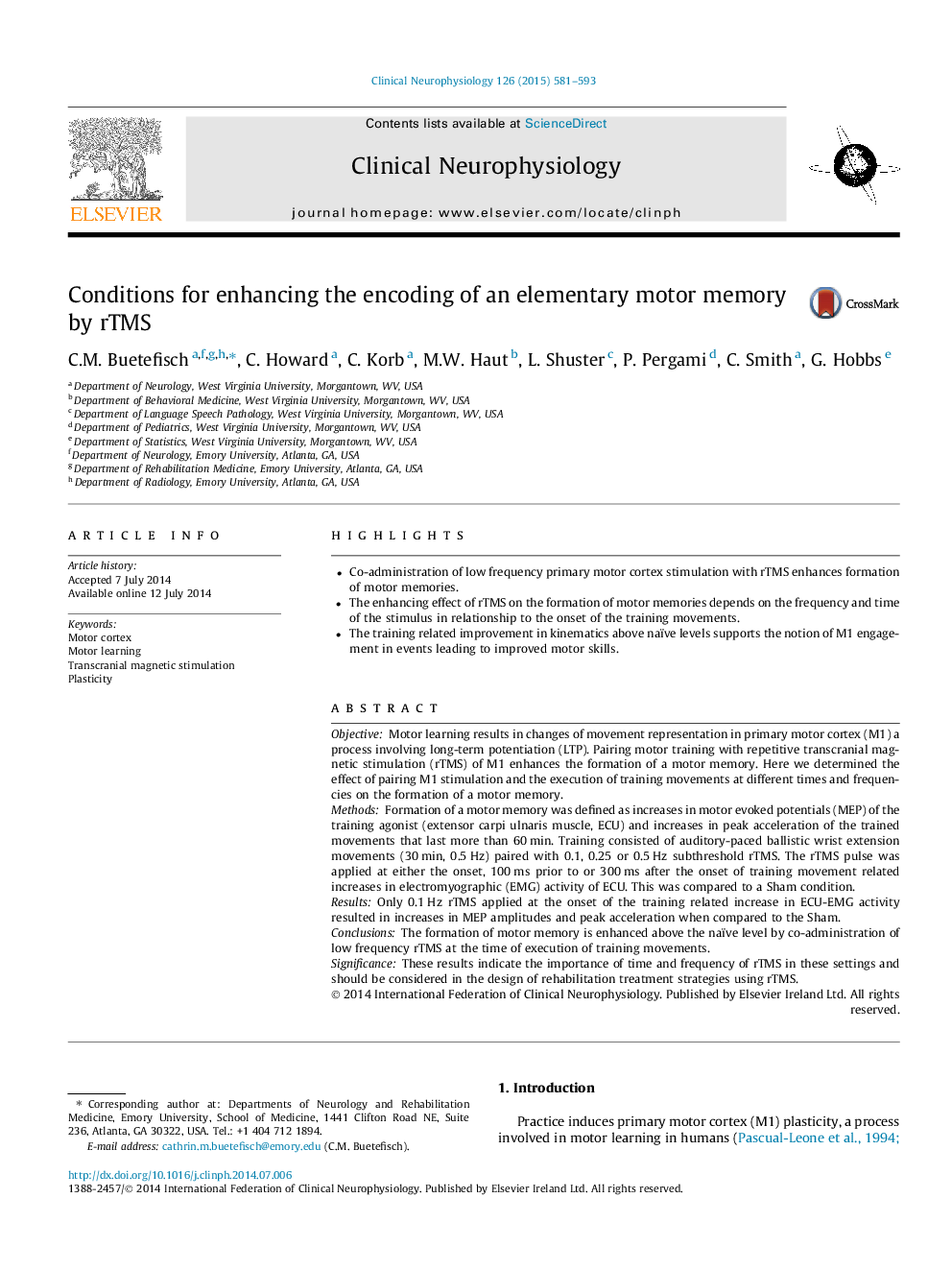| Article ID | Journal | Published Year | Pages | File Type |
|---|---|---|---|---|
| 3043719 | Clinical Neurophysiology | 2015 | 13 Pages |
•Co-administration of low frequency primary motor cortex stimulation with rTMS enhances formation of motor memories.•The enhancing effect of rTMS on the formation of motor memories depends on the frequency and time of the stimulus in relationship to the onset of the training movements.•The training related improvement in kinematics above naïve levels supports the notion of M1 engagement in events leading to improved motor skills.
ObjectiveMotor learning results in changes of movement representation in primary motor cortex (M1) a process involving long-term potentiation (LTP). Pairing motor training with repetitive transcranial magnetic stimulation (rTMS) of M1 enhances the formation of a motor memory. Here we determined the effect of pairing M1 stimulation and the execution of training movements at different times and frequencies on the formation of a motor memory.MethodsFormation of a motor memory was defined as increases in motor evoked potentials (MEP) of the training agonist (extensor carpi ulnaris muscle, ECU) and increases in peak acceleration of the trained movements that last more than 60 min. Training consisted of auditory-paced ballistic wrist extension movements (30 min, 0.5 Hz) paired with 0.1, 0.25 or 0.5 Hz subthreshold rTMS. The rTMS pulse was applied at either the onset, 100 ms prior to or 300 ms after the onset of training movement related increases in electromyographic (EMG) activity of ECU. This was compared to a Sham condition.ResultsOnly 0.1 Hz rTMS applied at the onset of the training related increase in ECU-EMG activity resulted in increases in MEP amplitudes and peak acceleration when compared to the Sham.ConclusionsThe formation of motor memory is enhanced above the naïve level by co-administration of low frequency rTMS at the time of execution of training movements.SignificanceThese results indicate the importance of time and frequency of rTMS in these settings and should be considered in the design of rehabilitation treatment strategies using rTMS.
